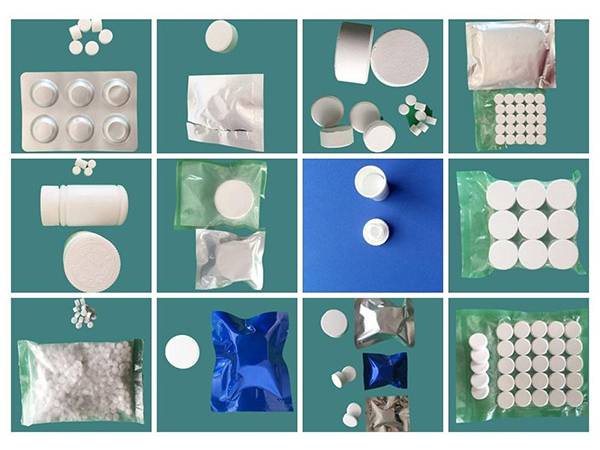



pool water treatment
Pool Water Treatment Ensuring Safe and Clean Swimming Environments
Swimming pools are a great source of relaxation and recreation, but they also require meticulous care to maintain hygiene and safety. Pool water treatment is essential for ensuring a clean, safe swimming environment. This encompasses various practices and chemical treatments aimed at keeping pool water clear, balanced, and free from harmful microorganisms.
Understanding Pool Water Quality
The quality of pool water is determined by several factors, including pH levels, chlorine concentration, total alkalinity, and water hardness. Each of these factors plays a critical role in the overall sanitation and comfort of the swimming experience.
1. pH Levels The pH scale ranges from 0 to 14, with 7 being neutral. For swimming pools, the ideal pH level is typically between 7.2 and 7.8. Maintaining this range is crucial because a pH that is too low can lead to skin and eye irritation, while a pH that is too high can decrease the effectiveness of chlorine and promote the growth of algae.
2. Chlorine Concentration Chlorine is the most common disinfectant used in pool water treatment. It kills bacteria, viruses, and other pathogens that can be harmful to swimmers. The recommended chlorine level for most pools is between 1 and 3 parts per million (ppm). Regularly testing chlorine levels ensures quick adjustments can be made to maintain optimal sanitation.
3. Total Alkalinity Total alkalinity acts as a buffer for pH levels, helping to stabilize them. The ideal range for total alkalinity in swimming pools is typically between 80 and 120 ppm. If alkalinity is too low, pH levels can fluctuate rapidly, leading to water quality issues.
4. Water Hardness The hardness of the water refers to the concentration of calcium and magnesium ions present. Ideal hardness levels for pool water usually fall between 200 and 400 ppm. Insufficient hardness can lead to corrosion of pool equipment, while excessive hardness can cause scale formation on the pool surfaces and fixtures.
Regular Maintenance Practices
In addition to maintaining the correct chemical balance, regular maintenance practices are vital for effective pool water treatment
. These includepool water treatment

- Filtration A well-functioning filtration system is crucial for removing debris and impurities from pool water. Regularly cleaning and checking filters helps to maintain their effectiveness.
- Skimming and Vacuuming Removing leaves, insects, and other debris through skimming and vacuuming should be part of a weekly maintenance routine. This not only keeps the pool looking clean but also reduces the load on the filtration system.
- Brushing Brushing the walls and tiles of the pool prevents the buildup of algae and other organic materials. This should be done at least once a week.
- Shock Treatment Shocking the pool, or adding a higher dose of chlorine temporarily, is an important step in tackling contaminants that regular chlorine levels might not eliminate. This process aids in maintaining water clarity and sanitation.
The Role of Algaecides
Algae can grow swiftly in pools if conditions are favorable. Using algaecides as a preventive measure can help inhibit algae growth. Regularly applying algaecides, especially during warmer months, can assist in maintaining crystal-clear water and reducing the frequency of major cleanings.
Impact of Environmental Factors
Environmental conditions also influence pool water quality. For instance, heavy rain can dilute chlorine levels, while wind can blow debris into the pool. Pool owners should monitor water conditions after significant weather changes and take corrective actions as needed.
Conclusion
In conclusion, pool water treatment is an ongoing process that involves careful monitoring and regular maintenance. By understanding key chemical parameters, implementing effective maintenance practices, and making adjustments based on environmental influences, pool owners can create a safe and enjoyable swimming environment. Regular attention to these details not only enhances the swimming experience but also prolongs the life of the pool and its equipment, ensuring friends and family can enjoy a refreshing dip for many years to come. Whether you're a new pool owner or an experienced one, staying informed about the best practices in pool water treatment is essential for maintaining an inviting oasis in your backyard.
-
Why Sodium Persulfate Is Everywhere NowNewsJul.07,2025
-
Why Polyacrylamide Is in High DemandNewsJul.07,2025
-
Understanding Paint Chemicals and Their ApplicationsNewsJul.07,2025
-
Smart Use Of Mining ChemicalsNewsJul.07,2025
-
Practical Uses of Potassium MonopersulfateNewsJul.07,2025
-
Agrochemicals In Real FarmingNewsJul.07,2025
-
Sodium Chlorite Hot UsesNewsJul.01,2025










